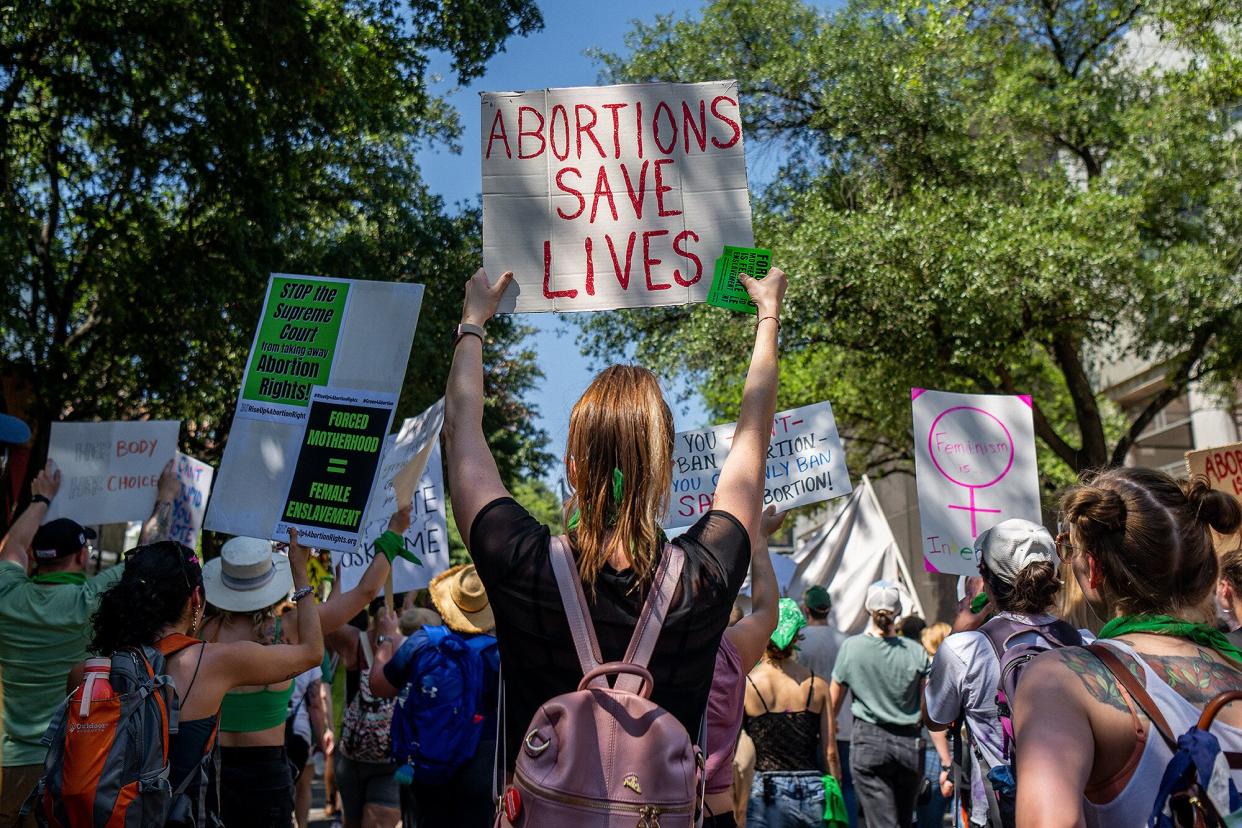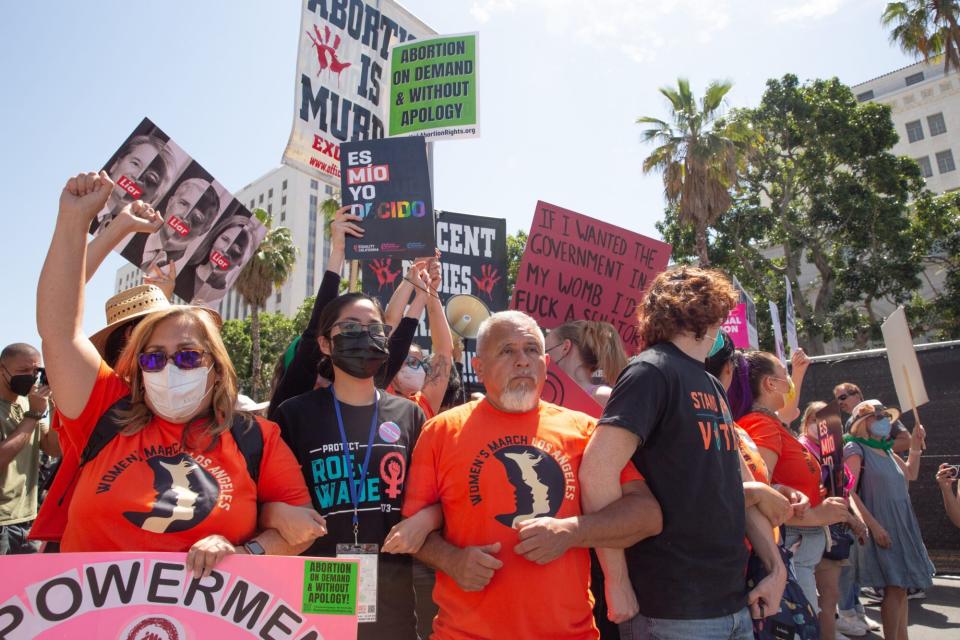Michigan Judge Temporarily Blocks State's Dormant 1931 Law Banning Abortions

Brandon Bell/Getty
A Michigan judge has temporarily blocked enforcement of a 1931 law that banned abortions, which would allow the procedure to remain legal in the state if the U.S. Supreme Court decides to overturn Roe v. Wade.
On Tuesday, Chief Judge Elizabeth Gleicher of the Michigan Court of Claims granted a preliminary injunction, part of a lawsuit by Planned Parenthood of Michigan, arguing that the decades-old law violates the State Constitution.
The 1931 law has been dormant since the Supreme Court's 1973 decision in Roe v. Wade, which legalized abortion nationwide.
"After 50 years of legal abortion in Michigan, there can be no doubt but that the right of personal autonomy and bodily integrity enjoyed by our citizens includes the right of a woman, in consultation with her physician, to terminate a pregnancy," Gleicher wrote in the order. "From a constitutional standpoint, the right to obtain a safe medical treatment is indistinguishable from the right of a patient to refuse treatment."
"Forced pregnancy, and the concomitant compulsion to endure medical and psychological risks accompanying it, contravene the right to make autonomous medical decisions," the judge added. "If a woman's right to bodily integrity is to have any real meaning, it must incorporate her right to make decisions about the health events most likely to change the course of her life: pregnancy and childbirth."
Never miss a story — sign up for PEOPLE's free daily newsletter to stay up-to-date on the best of what PEOPLE has to offer, from juicy celebrity news to compelling human interest stories.

Allison Zaucha-USA TODAY/Sipa USA
Michigan Gov. Gretchen Whitmer praised Tuesday's decision, vowing to "fight like hell to protect access to safe, legal abortion" in the state.
"Today marks an important victory for Michiganders," Whitmer said in a release. "The opinion from the Michigan Court of Claims is clear and sends the message that Michigan's 1931 law banning abortion, even in cases of rape or incest, should not go into effect even if Roe is overturned. It will help ensure that Michigan remains a place where women have freedom and control over their own bodies."
"But our work is not over," she continued. "We must protect the rights of nearly 2.2 million women in Michigan to make decisions about their bodies because, however we personally feel about abortion, a woman's health, not politics, should drive important medical decisions."
If Roe is overturned, 13 states — Arkansas, Idaho, Kentucky, Louisiana, Mississippi, Missouri, North Dakota, Oklahoma, South Dakota, Tennessee, Texas, Utah and Wyoming — that have so-called "trigger bans" in place that would almost immediately outlaw abortions.
RELATED VIDEO: Woman Whose Conception Sparked Roe v. Wade Case Breaks Silence: 'I'm Keeping a Secret but I Hate It'
And along with Michigan, four other states — Alabama, Arizona, West Virginia and Wisconsin — had bans on abortions in place before Roe established the nationwide right to abortion in 1973, and the could all enforce them again if the case is overturned. Four more states — Georgia, Iowa, Ohio and South Carolina — have passed bans or extreme limits on abortion that could go into effect if Roe falls.
RELATED: 33 Celebrities Who Have Shared Their Abortion Stories to Help Women Feel Less Alone
Meanwhile, 19 states have protected the right to abortion by codifying it into state law; Alaska, California, Colorado, Connecticut, Delaware, Hawaii, Illinois, Maine, Maryland, Massachusetts, Minnesota, Montana, Nevada, New Jersey, New York, Oregon, Rhode Island, Vermont and Washington.

 Yahoo Movies
Yahoo Movies 
